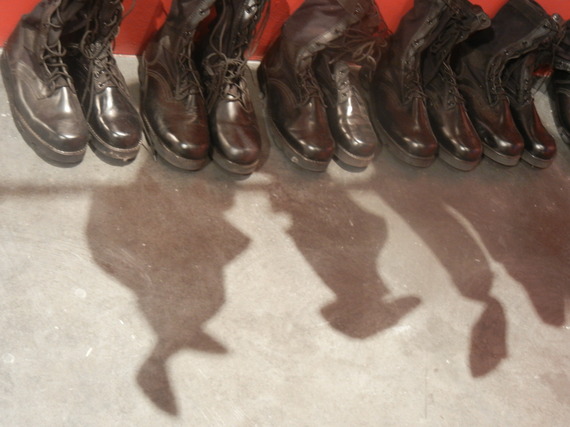What an animal! is a common expression of disgust used to describe the unacceptable behavior of a person.
At least, it's so where I grew up. Drivers surprised by a dangerous maneuver of another motorist would rapidly roll down the window and leaning halfway outside, extend their left arm in protest all the while shouting, "Animal!" Donkey, monkey, snake, cow, rat, horse, worm, fly and flea were some of the animals that became selective insults.
This was normal for me, I must confess. It certainly looks weird as I write it now, but in those days that's what people did. Nothing better than stepping out of your own culture and language to revisit what is "normal." Today I ask myself -- what does it mean when we use the word "animal" to insult someone? What lies behind it is the belief that in the hierarchy of living creatures, animals constitute more primitive creatures than humans. Following Darwin, we find a scientific explanation for how evolution has taken place over millions of years, transforming, shaping, and "perfecting" animals, particularly those two-legged ancestors, humanoids, to "finally" get to these civilized, intelligent beings that dominate the planet. Because, as author Gary Zukav puts it, in the linear trajectory of history, our narrative is, "that evolution is a process of ever-increasing ability to dominate the environment and each other." A large part of our civilization has come to believe that we need to have power to be in control. To Zukav, "We believe in external power," and go after it in a variety of ways. Power may take the form of a badge, boots, rank, uniforms, or guns, and while they seem to represent external power, those who wear them are actually fearful, Zukav observes: They fear to operate in the world without defenses.
There are other symbols of power taking diverse shapes. These include degrees, money, information, cars, hierarchy, size or location of our homes, age, physical shape or size, gender, ethnicity, lineage, knowledge, and even people we know or hang out with. Marketers of goods and services have cleverly applied economic and psychological triggers, providing us with the "solutions" to our challenges so we can feel better. When we see power as something external that we can "get," wear, or have -- we become motivated to defend the symbols of our identity and stimulate the economy. From there, it is a small step to feel threatened, to find our identity at risk in the deepest sense. As we collectively share this belief, we help each other to protect ourselves from theft, property loss, reputation loss, because what is at stake is our sense of who we are. But is who we are actually determined by what we have, or what we do?
During an exercise with students at Fordham, I invited them to make a list of what makes you "you." Then I invited them to cross out those things that while valuable, nevertheless could be lost without losing their sense of identity. Then a second round: Take out even more things. The protest in the room was deafening. "If I take out my career, the house, my girlfriend -- then I don't have anything left!" Really! Really?
We humans, the self-styled summit of evolution, the civilization that exercises ultimate control and domination of the planet and each other -- how are we performing the self-assigned task? Open the newspaper to find the answer.
Perhaps the best gift arising in these times of turmoil is the opportunity to learn something from beings on this planet that: are more able to live in harmony with each other; that don't destroy their sources of food and safety; that don't threaten their own health with behaviors that contaminate the air, the water of the soil; or that poison the land for the next one hundred thousand years. Perhaps we can tune a bit more into our intuition, that archaic wisdom we carry. Perhaps our identity is to be found inside us.
Perhaps, we could evolve and become a bit more -- animal?
